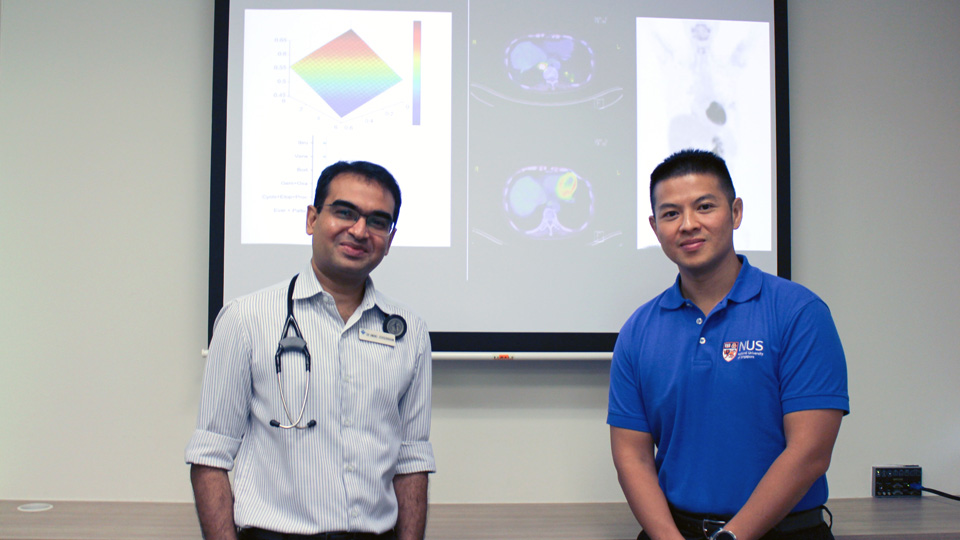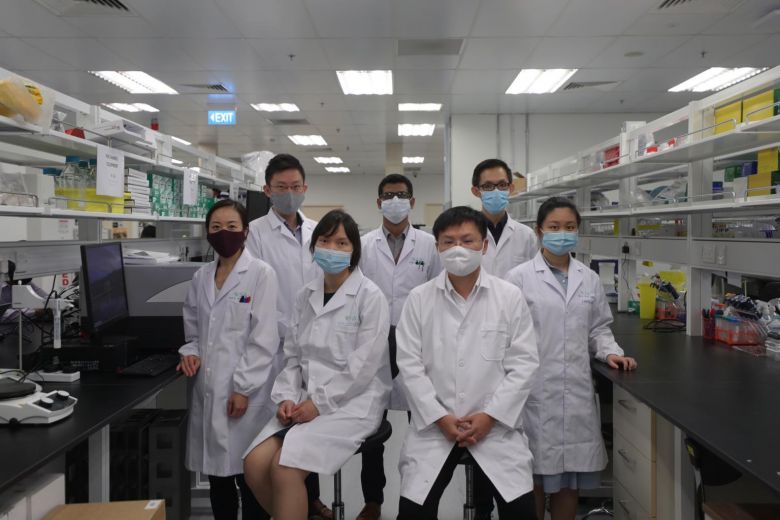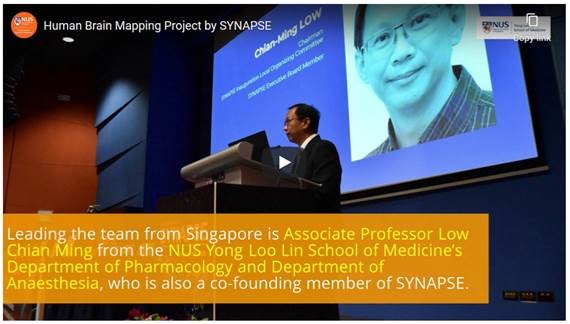Congratulations to A/P LOW Chian Ming on the successful SYNAPSE Inauguration and leading to signing the MOU.
Scientists from the National University of Singapore (NUS) are working as members of an international team to produce a first-of-its-kind ultra-high resolution 3D comprehensive map of the human brain’s neural network. The effort involves teams from Singapore, Japan, South Korea and Taiwan. Australia and China have also expressed interest to be part of the project. Initiated at NUS, the Singapore team, comprising researchers from the local scientific community, will use synchrotrons – extremely powerful x-ray sources – to trace the complex and intricate networks that cover the brain.
Associate Professor Low Chian Ming from the NUS Yong Loo Lin School of Medicine’s Department of Pharmacology and Department of Anaesthesia is a co-founding member of this international consortium, and leads the team from Singapore. The team will work to construct the map of the human brain and coordinate the data management for this endeavour.
The work will link the synchrotron facilities in the Asia Pacific region under a collaboration called Synchrotron for Neuroscience – Asia Pacific Strategic Enterprise (SYNAPSE), which is expected to involve more than 1,000 researchers. Launched today at the NUS Shaw Foundation Alumni House Auditorium, the founding members of the initiative signed a Memorandum of Understanding (MOU) committing to work together to complete their brain map project by 2024.










